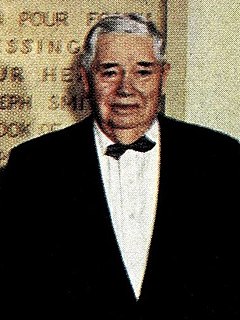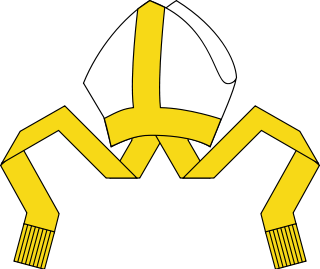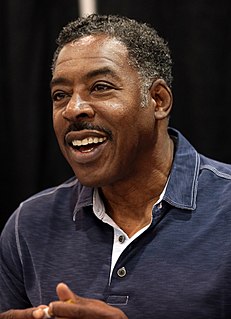A Quote by Robert E. Lee
Let us go home and cultivate our virtues.
Related Quotes
I am persuaded, from all the facts that have come to me, that it would have been possible, if we had functioned as the Lord intended us to function, if we had paid our tithes and our offerings as the Lord intended us to pay them, we might have gone on without one dollar from our federal government. And has it ever occurred to you what a mighty influence we should have exercised for good and for respect and for all of the virtues that we have been taught, and that God has commanded us to exercise and cultivate and practice, if we had just followed along what he has asked us to do?
[Benjamin Franklin]identified thirteen virtues he wanted to cultivate--temperance, silence, order, resolution, frugality, industry, sincerity, justice, moderation, cleanliness, tranquility, chastity and humility--and made a chart with those virtues plotted against the days of the week. Each day, Franklin would score himself on whether he practiced those thirteen virtues.
Take the Long Way Home is a song that I wrote that's on two levels - on one level I'm talking about not wanting to go home to the wife, 'take the long way home' because she treats you like part of the furniture. But there's a deeper level to the song, too. I really believe we all want to find our true home, find that place in us where we feel at home, and to me, home is in the heart. When we’re in touch with our heart and we're living our life from our heart, then we do feel like we found our home.
It's just this: that there are places we all come from-deep-rooty-common places- that makes us who we are. And we disdain them or treat them lightly at our peril. We turn our backs on them at the risk of self-contempt. There is a sense in which we need to go home again-and can go home again. Not to recover home, no. But to sanctify memory.
Thyself and thy belongings
Are not thine own so proper, as to waste
Thyself upon thy virtues, they on thee.
Heaven doth with us as we with torches do,
Not light them for themselves; for if our virtues
Did not go forth of us 't were all alike
As if we had them not. Spirits are not finely touch'd
But to fine issues; nor Nature never lends
The smallest scruple of her excellence,
But, like a thrifty goddess, she determines
Herself the glory of a creditor -
Both thanks and use.




































